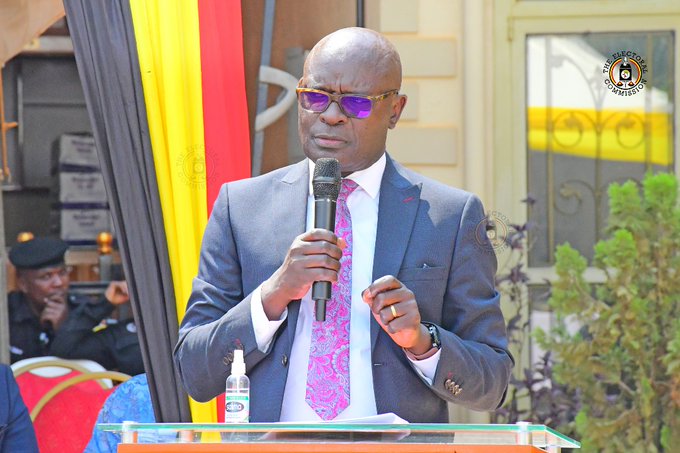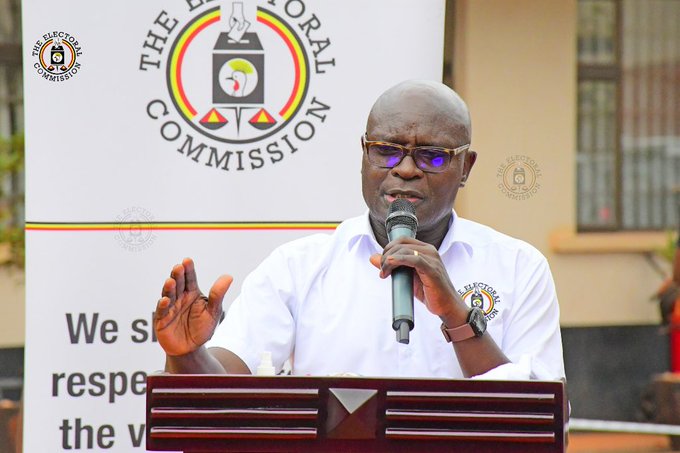Makerere, Uganda – Dr. Martin MBONYE has earned the Degree of Doctor of Philosophy from Makerere University for a rare study in Kampala’s ‘red light’ district zone.
His study focused on the experiences of men who contract or spread HIV/AIDS from their relationship with sex workers.
For shedding light on the intricate dynamics of masculinity and its impact on accessing HIV services among men in relationships with female sex workers (FSW) in Kampala, Uganda, Dr. Mbonye was awarded on Monday, January 29, 2024.
For this study, Dr. Mbonye used a qualitative ethnographic approach to understand the experiences of men navigating relationships with FSWs.
“These men faced unique dilemmas, including challenges related to sexual exclusivity, societal stigma attached to sex work, and economic constraints that impacted their ability to conform to conventional expectations of masculinity,” he told this website on Sunday.
He says his study found that in these relationships, however, satisfaction and positive outcomes were found.
He says, for example, that the commitment of the female partners played a crucial role, not only in maintaining the relationship but also in connecting the men to essential HIV services.
His study revealed that in addition to the above, financial support from the female partners added another layer of resilience and satisfaction for the men involved.
Dr, Mbonye’s research concludes that within the intersection of these two marginalized groups – men in relationships with FSWs – opportunities exist to defy societal norms and construct positive health behaviors.
“By leveraging the strengths within these relationships, individuals can craft a sense of respectability, even from positions of societal marginality,” he says of his study.
This study, funded by THRIVE-2, brings forth a novel perspective on the interplay between masculinity, relationships, and healthcare access.
About THRIVE
Established in 2009, Training Health Researchers into Vocational Excellence (THRiVE) operates as a regional network of research excellence, comprising leading universities and research institutes in East Africa, with support from two prominent UK universities.
This collaborative initiative has facilitated over 300 joint publications since 2010, fostering strong research collaborations, training, and supervision.
THRiVE has made significant strides in enhancing institutional capacity for research administration and management, contributing to the development of world-class research programs in the region.
THRiVE’s objectives encompass implementing high-quality scientific research training, conducting impactful research on African health priorities, engaging the public in science awareness programs across Kenya, Tanzania, and Uganda, and creating professional environments to support scientific research.
The funding provided by THRiVE has empowered African institutions to enhance infrastructure, administrative capabilities, and scientific staff capacity, addressing challenges faced by academic institutions in sub-Saharan Africa, particularly in information technology and laboratory infrastructure.
Through mentorship programs, THRiVE has nurtured young researchers, both post-graduate and post-doctoral fellows, contributing to the growth and development of research leaders in East Africa.
Dr. Mbonye’s study was supervised by Dr. Godfrey Siu and Prof. Janet Seeley.
About The Author
Arinaitwe Rugyendo
Rugyendo is the Founder and Editor-in-Chief of ResearchFinds News. He’s an accomplished journalist with a rich background in the media industry in Uganda. With over two decades of experience, Rugyendo has held various roles including cab reporter, Bureau Chief, Managing Editor, and Digital Media Editor at renowned publications such as Daily Monitor and Red Pepper. Throughout his career, he has demonstrated a commitment to delivering high-quality journalism and staying at the forefront of media trends. In addition to his journalistic pursuits, Rugyendo is currently pursuing a Ph.D. in Journalism and Communication at Makerere University. He has been recognized for his outstanding leadership and commitment to social change as a Desmond Tutu Fellow and Crans Montana New Leader. Rugyendo also serves as the Chairman of Young Engineers Uganda and Uganda Premier League, showcasing his dedication to promoting excellence and growth in various fields. With a passion for driving innovation and pushing boundaries in media, Rugyendo continues to make significant contributions to the industry. His vast experience, academic pursuits, and leadership roles make him a respected figure in the Ugandan media landscape.















